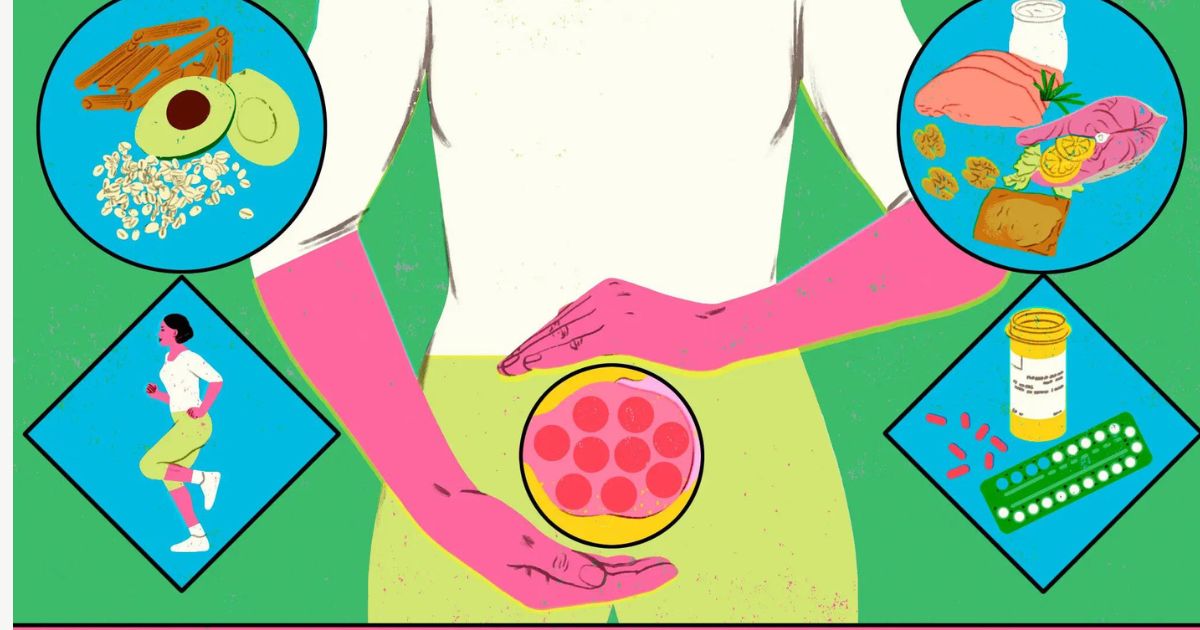For years, individuals diagnosed with polycystic ovary syndrome (PCOS) and grappling with weight issues were often advised that shedding pounds through calorie-restrictive PCOS diets could alleviate their symptoms. However, recent research has cast doubt on this long-held belief, suggesting that dieting may not have the desired impact on PCOS symptoms after all.
A study published in Nature Metabolism conducted by researchers at the University of Pittsburgh School of Medicine delved into the efficacy of calorie-restrictive diets in managing PCOS.
Contrary to previous recommendations, the study found no substantial evidence to support the notion that a restrictive diet significantly improves PCOS symptoms in the long term. Moreover, sustained weight loss through dieting is challenging for individuals with PCOS, as it is for many others.
Weight Loss Due to PCOS Diet. Is It True?
Julie Duffy Dillon, a registered dietitian specializing in PCOS care, emphasized the lack of clarity regarding the link between sustained weight loss and symptom improvement in individuals with PCOS. This ambiguity prompted a reassessment of dietary guidelines by the International PCOS Network, leading to the abandonment of recommendations for caloric restriction in favor of a balanced and healthy dietary approach akin to the Mediterranean diet.
Dr. Helena Teede, an endocrinologist at Monash Health in Australia and lead author of the revised guidelines, highlighted the shift away from blaming individuals for their weight and health conditions. Instead, the focus has shifted towards promoting overall health through balanced dietary compositions.
PCOS is a hormonal disorder affecting millions of women worldwide, characterized by symptoms such as irregular periods, infertility, excessive hair growth, acne, and scalp hair loss. Despite its classification as a reproductive issue, PCOS can also impact metabolic health, including blood sugar levels, blood pressure, and cholesterol. Individuals with PCOS are at a higher risk of developing cardiovascular disease, endometrial cancer, and diabetes.
The complex relationship between PCOS and weight is underscored by bidirectional influences, as elucidated by Dr. Anuja Dokras, director of the Penn Polycystic Ovary Syndrome Center at the University of Pennsylvania. While PCOS predisposes individuals to weight gain, the exacerbation of symptoms with weight gain remains poorly understood.
The 2023 guidelines acknowledge the variability of obesity rates among individuals with PCOS globally and emphasize that not all individuals with obesity have PCOS. While some studies suggest that lifestyle-induced weight loss may improve certain hormonal and metabolic symptoms of PCOS, evidence regarding fertility outcomes remains inconclusive.
Dr. Dokras noted the challenging nature of researching the impact of weight loss on fertility, emphasizing the need for further investigation into optimal weight loss strategies and their effects on reproductive health. Notably, studies on bariatric surgery outcomes among obese women with PCOS have shown promising results, indicating improved menstrual regularity and hormonal balance post-surgery.
However, the prevalence of insulin resistance among women with PCOS poses additional hurdles to weight loss efforts, exacerbating symptoms and complicating treatment approaches. Despite ongoing research into potential therapies such as weight loss drugs like Ozempic, the intricate interplay between PCOS, weight, and metabolic health continues to pose challenges in clinical management.
In conclusion, the evolving understanding of PCOS underscores the importance of tailored, holistic approaches to managing the condition. While the promise of the PCOS diet may have faltered, ongoing research endeavors offer hope for improved outcomes and enhanced quality of life for individuals living with this complex hormonal disorder.








Leave a Reply
You must be logged in to post a comment.